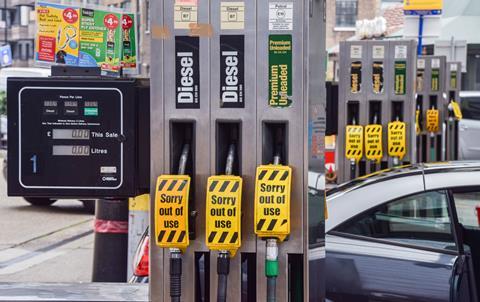Whether its Brexit, the media or the panic buyers, it seems everyone is looking for someone or something to blame. But whose fault is it? Jonty Langley wonders if the problem is much bigger than most have imagined

Isn’t having someone to blame one of the sweetest guilty pleasures in life? And haven’t the last few days been brilliant for it?
The Great Petrol Panic of 2021 has given everyone an opportunity to blame whoever they like blaming, no matter our political beliefs.
Liberals have blamed Brexit and the Tories. Conservatives have blamed workshy drivers and spiteful Europeans. As the ultimate safe bet, Leftists have blamed capitalism. And many of us have just blamed ”The Media”.
Don’t get me wrong. People are awful. Particularly people who aren’t me. And the media, like all for-profit industries, will often put clicks, sales and serving the Hot Take Industrial Complex above the common good. But blaming them for petrol queues is wrong.
And before you roll your eyes, this isn’t one of those columns telling you that blaming anyone for anything is bad. Sometimes people or laws or systems are, in fact, to blame for a bad situation. The gentle knee-jerk reaction of some ‘nice’ Christians (who see blame or any complaint as sin) is just a self-righteous way of saying “I’m alright, Jack”. It’s okay to assign blame. Just do it right.
Blaming the media for reporting on a panic, though, is stupid. Reporting is literally their job. Blaming them for raising the risk of shortages before the panic is also a little hypocritical if you think Britain benefits from a free press. Apart from anything else, it’s 2021. Misinformation doesn’t need journalists to spread (check out your local Illuminati-watch / anti-vaxx Facebook group for more info).
So, is the current shortage just down to the sin of selfishness? That’s an easy conclusion to jump to, which is probably why so many people have settled on it (and the fact it helps us ‘not take sides’ doesn’t hurt). But before we scape that particular goat, let’s ask ourselves some questions.
Is panic buying really immoral or stupid? I’m not sure it always is.
If you know that something you need is about to run out, it is the most natural thing in the world to replace it. If it is going to be scarce for a while, it is pretty reasonable to stock up for the future. And the argument that a shortage of toilet paper or petrol is only being caused by people stocking up (or ‘panic buying’ to use the too-widely-applied judgemental term) doesn’t make the shortage disappear.
Scripture is ambivalent on this, of course – advocating wisdom and worldly preparedness in Proverbs, but warning against the futility of earthly stores or treasures in the New Testament. A general ethic of selflessness and restraint may be moral, but it can also mean real sacrifice.
It’s like in a disaster movie. There’s always a scene where the roads are clogged up with people trying to escape, trapping everyone. Staying home and choosing to die rather than contribute to jammed escape routes may be heroic or ideally Christian, but does it make those wanting to live (and choosing not to sacrifice themselves) bad people?
Obviously, hoarding for profit is wrong (although someone really should tell Joseph that). But if we are more upset by ordinary people stocking up on pasta, petrol or bog-roll than billionaires hoarding money, we need to re-read James chapter 2. If we are okay with some people owning multiple homes just so that they can profit off other people needing a roof over their heads, why are we upset when others take more than they need right now out of legitimate worry and fear? I suspect it’s because we are conformed to the thinking of this world, which subtly tells us every day that there is a different standard for the wealthy and that weaponises our least Christlike traits to focus our ire on our neighbours rather than complex injustice.
our economic system is so obsessed with maximising profit that we have created a logistics landscape which has very little room for unusual events
The fact is: our economic system is so obsessed with maximising profit that we have created a logistics landscape which has very little room for unusual events – worshiping efficiency gains to the detriment of tolerances and stopgaps. Supermarkets don’t keep much stock on site because it’s not cost effective. Petrol stations operate on normal use predictions, with very little tolerance built in. There are good reasons for all this, but they mostly serve shareholder profit. And when something goes wrong, be it a driver shortage or a panic (whether reasonable or baseless), the system does not cope well.
Perhaps the benefits it delivers make these occasional blips worth it. Perhaps that makes it all alright. But what is not alright is blaming ordinary people for a system’s failure. Our struggle, after all, is not against flesh and blood. Maybe flesh and blood should not be the first thing we blame.
Christians should show restraint. But we should also have empathy for our neighbours and courage to see beyond the simplistic.





































